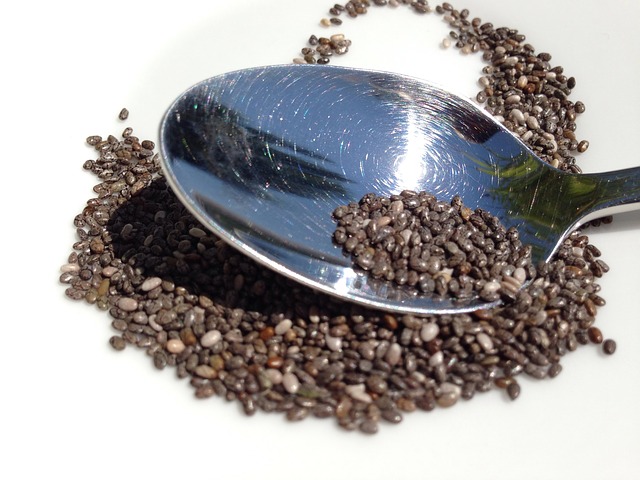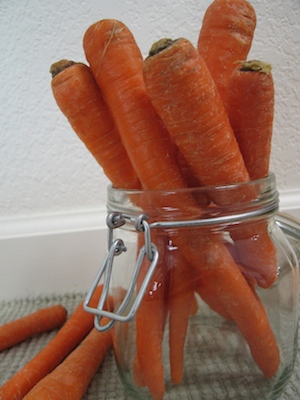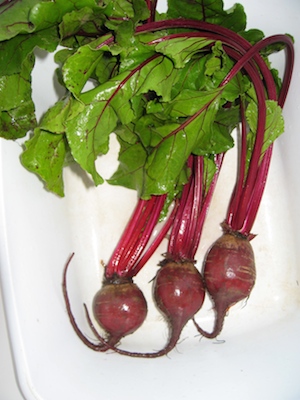
by plant4health | Feb 25, 2016 | cancer, Healing, Plant-based, Recipes, WFPB, Whole food, Whole food, plant-based

Inflammation is the root cause of most diseases (cancer, diabetes, heart disease, stroke, migraines, thyroid issues, asthma, etc.). When we begin experiencing chronic pain, it is easy to forget about the importance of paying attention to our bodies and the role foods play in our health.
When healing inflammation, the number one important thing to remember is that inflammation loves an acidic environment. We create this environment in our bodies by:
- Eating acidic foods (meat, dairy, sugar, wheat, and other acidic foods)
- Experiencing chronic mental stress (fear, resentment, depression, anger, worry, anxiety)
- Suffering from physical stress (bodily injury, surgery, insomnia, physical strain/overuse)
The best way to support your body while experiencing chronic inflammation is to address the above issues and how they affect your life. (more…)

by plant4health | Aug 6, 2015 | cancer, Healing, Plant-based, Recipes, Vegan, WFPB, Whole food, Whole food, plant-based
 Chia seeds have become a trendy health food, but are they really worth the expense? A 12 oz. bag ranges from $8 to $11. This cost can put a lot of stress on the food budget.
Chia seeds have become a trendy health food, but are they really worth the expense? A 12 oz. bag ranges from $8 to $11. This cost can put a lot of stress on the food budget.
Chia seeds are tiny brown black seeds, about the size of poppy seeds. The chia plant is from the mint family, native to the deserts of Central America and Mexico. They have been a dietary staple for the Aztec and Mayans, most commonly used as an energy and hydration food for their warriors as well as a medicinal for joint and skin complaints.
Today, chia seeds are promoted as a superfood, having been proven to provide the following health benefits:
Aids in the elimination of carcinogens – Chia seeds are loaded with fiber. Eating enough fiber is extremely important as it aids in removing harmful carcinogens through the digestive tract. When in contact with liquid, the seeds expand forming a gel that adds bulk to your stools, preventing constipation by keeping your bowel movements regular. (more…)
by plant4health | Apr 22, 2015 | Plant-based, Sustainability, Vegan, WFPB
In honor of Earth Day, I’d like to share a short video I created on the impact of our food choices on people, animals and the planet. Adopting a whole food plant-based (WFPB) diet, promoting organic farming practices, and eliminating subsidies to farmers and fisheries can go a long way to help the health of humans, animals and our planet.
[wpvideo lXDgSfQz]
Transcript:
Our planet has over 7 billion people and the population is growing at 14% per year. We have 50% more people today than in 1980. 60% of humans are malnourished. Resources are stretched to the limit. How can we feed our growing population in a sustainable way?
99.7% of our food comes from land but our crop land is decreasing due to population growth, soil erosion and salinization. We could have 30% less irrigated crop land worldwide by 2025. Conventional farming practices use pesticides and herbicides which reduce the nutrient value of soil and create dead zones in our oceans where nothing can live. Organic farming is the best choice. It uses cover crops for natural fertilizer and builds nutrient-rich soil that stores water.
It takes far more water to raise animals for human consumption than to grow plant food for human consumption. A 1 lb. loaf of bread requires 250 gallons of water to produce, whereas 1 lb. of beef takes 5,000 gallons of water. You would save more water just by replacing a pound of beef with plant foods than you would by not showering for six months! It takes less water to produce one year’s worth of food for a completely plant-based diet than it does to produce one month’s worth of food for a diet with animal products.
As mentioned earlier, nitrogen fertilizers used on conventionally-grown crops run off into our coastal oceans, creating dead zones where nothing can live. In addition, many fish we eat are full of heavy metals like mercury. Over fishing is taking its toll. 75% of fisheries are in peril and there has been a 90% decline in prized fish like tuna and swordfish. We’ve maxed out the ocean and can only bring in 85 million metric tons of fish annually. Farmed fish is not the answer. It also creates dead zones from nitrogen fish food and the cramped conditions encourage disease.
The US government has been giving subsidies to farmers and fisheries for decades. Farmers paid by the government are forced to grow a single crop, such as corn. They get rid of their livestock and no longer have onsite fertilizer. They buy commercial fertilizer which damages our soil and oceans. Subsidies to cattle ranchers to produce cheap meat – increasing meat consumption and therefore water consumption. Subsidies to fisheries result in over fishing. According to the World Trade Organization, US subsidies violate trade practices.
With a growing population of over 7 billion people, we are running out of land to grow food, running out of fresh water in many areas, ruining our coastal oceans and over fishing with some species near extinction. The status quo is unsustainable.
Here are 2 things you can do to help change the status quo.
- Take action! Recognize that we all own our planet: land, water, oceans and air. Encourage your government officials to ban subsidies to farmers and fisheries.
- Eat an organic, 100% plant-based diet. It’s healthier for you, healthier for our land, healthier for our water and marine life and certainly better for the animals who are not killed for consumption by humans.
Sources:

by plant4health | Mar 24, 2015 | Plant-based, Recipes, Vegan, WFPB, Whole food
 The nutritional power of everyday foods always amazes me. Perhaps because they are so readily available we overlook their healing capacity.
The nutritional power of everyday foods always amazes me. Perhaps because they are so readily available we overlook their healing capacity.
A common dipping tool for hummus and guacamole, a popular addition to salads and stews, the healing potential of carrots tends to be dismissed. In addition to containing many alkaline elements that assist your body in maintaining the acid-alkaline balance that is essential for optimal health, carrots have more than 490 phytochemicals. Each phytochemical provides different health benefits; some assist in detoxifying your body, others stimulate the immune system, modulate metabolism, and/or have antibacterial and antiviral qualities.
We all know about how the high amounts of the carotenoid beta-carotene found in carrots (that converts into vitamin A in our bodies) supports healthy vision, skin, and bones, but did you know that carrots are a great source of disease fighting flavonoids? These flavonoids provide antioxidants that work towards neutralizing free radicals that attack the cells of your body, protecting them from forming cancer cells, causing premature aging, and taxing your immune system.
Did you know that carrot juice is an effective diuretic? The combination of vitamins, minerals and antioxidants found in carrots promote detoxification and the elimination of excess water from your body.
But that’s not all. Below is a list of nutrients found in carrots. Raw or cooked, this vegetable holds a powerhouse of healing potential:  Below are some of the ways these nutrients play a vital role in your health, reducing your risk of chronic disease and cancer.
Below are some of the ways these nutrients play a vital role in your health, reducing your risk of chronic disease and cancer.
Heart Disease
The British Journal of Nutrition (Nov 2011) reported that consuming deep orange fruit and vegetables, especially carrots, may provide you with a 32% lower risk of coronary heart disease.
In addition, the antioxidants found in carrots work together synergistically to provide cardiovascular protective benefits. It is believed that obtaining any of these antioxidants in isolation from each other would not create the same effect. It is the nutrition from the whole food that provides the full health benefits.
The calcium found in carrots helps prevent the narrowing of blood vessels, the potassium promotes regular heartbeat, and the vitamin C protects cells against free radicals and strengthens blood vessel walls. Learn more here and here.
Cancer
Antioxidants in carrots, including vitamin C and beta-carotene, are known to play a significant role in cancer prevention; In 1986, a case-control study on the effect carrots and green vegetables have on lung cancer found that smokers who ate carrots more than once a week had a lower risk of lung cancer.
In 2011, a study investigated the effect of carrot juice extracts on leukemia and found evidence that carrot juice extract kills leukemia cells and inhibits their progression, making carrots an excellent source of bioactive chemicals to treat leukemia.
Fertility
According to the Harvard University School of Public Health (November 2013), eating foods rich in beta-carotene, like carrots, can boost male fertility, improving sperm motility by 6.5 – 8%.
Tips
Carrots are available in the grocery stores year-round. If you purchase your carrots at a farmers market with the greens attached, remove them before storing to prevent the greens from drawing out moisture and nutrients from the roots.
There are so many uses for carrots: shred them in salad and coleslaw, add them to wraps, steam or roast them for dinner, include them in muffins or cake to add a touch of sweetness, or juice them into a nutrient rich veggie drink.
Try one of these recipes:
![The Amazing Healing Powers of Beets]()
by plant4health | Feb 24, 2015 | grocery shopping, Plant-based, Recipes, Whole food
 Beets are amazing! Packed full of vitamins and minerals, they are an important addition to any healing diet. Here’s just a few reasons why: (more…)
Beets are amazing! Packed full of vitamins and minerals, they are an important addition to any healing diet. Here’s just a few reasons why: (more…)






